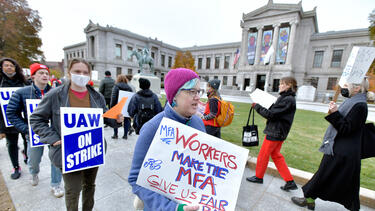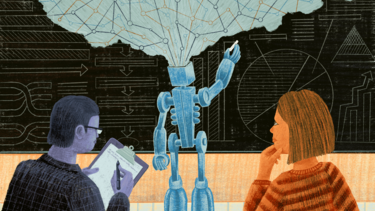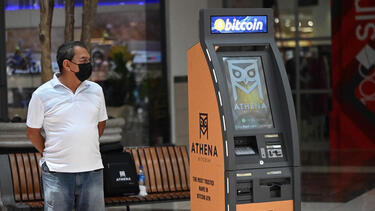Research
What Happens When Unions Bargain for Social Justice?
In a new study, Yale SOM’s James Baron and Daniel Julius examine the wave of unionization in museums, where workers often bring social-justice concerns to the bargaining table.

Can ChatGPT Accelerate Social Science Research?
Yale SOM’s Balázs Kovács and his co-authors spent years designing a computer-based method to measure “typicality.” In a new study, they found that ChatGPT could duplicate their results at a fraction of the cost.

El Salvador Adopted Bitcoin as an Official Currency; Salvadorans Mostly Shrugged
In an effort to boost financial inclusion, El Salvador made Bitcoin an official currency and offered incentives for adopting it. A new study co-authored by Yale SOM’s David Argente and Diana Van Patten found that a lack of trust caused use of the cryptocurrency to fall off quickly.

Are U.S. Cities Preparing for the Flooding to Come?
A new study co-authored by Yale SOM’s Anya Nakhmurina uses a novel method to track local efforts to prepare for climate change, and shows that many of the U.S. cities most at risk are behind in adopting adaptation measures.

Teachers See Misbehavior from Black Students as More Blameworthy
In order to isolate the role of race in teacher-student interactions, Prof. Jayanti Owens created videos using actors to depict misbehavior. She found that teachers are more likely to describe an incident with “blaming” language if the actor playing the misbehaving students is Black.

U.S. Government Regulators May Be Favoring Their Future Private-Sector Employers
How does the “revolving door” between government and industry benefit firms? A new study co-authored by Yale SOM’s Ivana Katic finds that firms see a smoother regulatory process in the months before they hire a former regulator, suggesting that they may find favor via the promise of future employment.

Does Having a Choice Provide an Illusion of Control?
A study co-authored by Yale SOM’s Joowon Klusowski and Deborah Small finds giving people a choice doesn’t makes them think they are more likely to achieve a positive outcome and provides an explanation of why the opposite can appear to be to be true.

Does Capital Spending on Schools Improve Education?
Yale SOM’s Barbara Biasi and her co-authors found that some projects improve test scores and others boost local property values—but they aren’t the same ones.

A Better Algorithm Can Bring Volunteers to More Organizations
Yale SOM’s Vahideh Manshadi and her collaborators found that an online platform was steering volunteers toward a small group of opportunities. By building equity into the algorithm, they were able to help more organizations find the volunteers they need.

In the Emergency Department, Patients from Marginalized Groups Are More Likely to be Bypassed in the Queue
In a busy hospital emergency department, White people who speak English and have private insurance are more likely to jump the line and get seen first, according to new research from Professors Lesley Meng and Edieal Pinker and Dr. Rohit Sangal ’21 of Yale New Haven Hospital.
